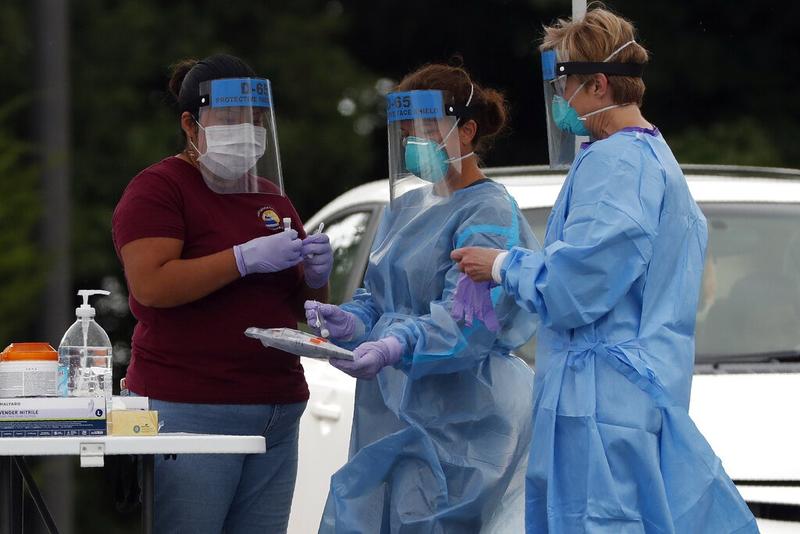 Medical personnel handle test samples at a community coronavirus testing site operated in Burlington, North Coralina., July 9, 2020. (GERRY BROOME/AP)
Medical personnel handle test samples at a community coronavirus testing site operated in Burlington, North Coralina., July 9, 2020. (GERRY BROOME/AP)
Healthcare systems worldwide need to upgrade to control disease transmission and cope with large numbers of sick people during the coronavirus pandemic as well as future outbreaks, the head of the World Health Organization's emergencies program warned on Friday.
READ MORE: China, Russia vow to safeguard 'just and equitable' world order
Michael Ryan of WHO, speaking during a video panel session organized by the International AIDS Society, said world leaders grappling with the current pandemic "need to take a leaf out of the HIV/AIDS activist book" and make sure access to healthcare is equitable and evidence-based.
We cannot become distracted with retrospection and fingerpointing. ... We need to look ahead
Michael Ryan, WHO's emergencies proram head
The coronavirus pandemic, which has not yet peaked in many parts of the world, has exposed weaknesses and left billions of people without reliable and affordable access to essential health services, he said.
Human immunodeficiency virus (HIV), the virus that causes AIDS, was often a fatal infection when it emerged in the 1980s, but today is considered manageable with antiretroviral drugs.
There is no vaccine to protect against HIV, which is highly variable and cannot be eliminated by the body's own immune response.
But researchers do expect to eventually have vaccines effective against the novel coronavirus, which people can recover from on their own.
ALSO READ: China to join WHO global initiative against pandemic
The WHO official said the two viruses are "different in scope and nature, but are comparable in so many other ways," exposing the same inequities and generating similar injustices and denial.
"We cannot become distracted with retrospection and fingerpointing. ... We need to look ahead," Ryan said.
Droplets transmission 'appear dominant'
Meanwhile, Maria Van Kerkhove, technical lead on the COVID-19 pandemic at the WHO, said on Friday that airborne transmission of the new coronavirus had always been a concern but that droplets appeared to be the most common infection route.
"Aerosol transmission is one of the modes of transmission that we have been concerned about since the beginning, particularly in healthcare settings ... where we know these droplets can be aerosolised - which means can stay in the air longer," she told an online briefing from Geneva.
The WHO released new guidelines on the transmission of the coronavirus on Thursday that acknowledged some reports of airborne transmission but stopped short of confirming that it spreads through the air, a route that cannot be blocked by the social distancing now common around the world.


